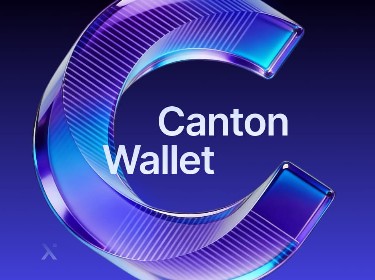Ethereum wallets allow users to easily and smoothly interact with the Ethereum network. Since there’s a wealth of Ether wallets to choose from it would be easy to get lost, but it’s important to sift through them all to find the one that will suit your personal needs and requirements.
With the second largest capitalization after Bitcoin, Ethereum is one of the most widely traded cryptocurrencies in the world. It was introduced in 2014 by Vitalik Buterin, a prominent and respectable personality in the crypto space.
Ethereum has been witnessing a significant upsurge in popularity after the DeFi boom in 2020. According to DappRadar, 95% of the total transaction volume reached $270 billion, with 95% of this figure attributed to the Ethereum DeFi ecosystem.
As a result, more users have been eager to join the Ethernet network. However, the more people join the community, the greater is the need to create totally secure cryptocurrency wallets, where users can safely store their Ethereum coins and ERC-20 tokens. As of today, an astonishing variety of Ethereum wallets exists, but choosing the right one is a tall order, since you have to consider a number of important factors, including security, ease of use, reliability, functionality, durability, etc.
Sounds difficult, right? But don’t worry — we’re here to save you the trouble of searching for the relevant information yourself. Read on to find out more about the different types of Ethereum wallets, their characteristics and security measures, and get insightful information about the ten most popular Ethereum wallets.
Overview of Ethereum wallets
An Ethereum wallet is normally described as an application or software program that enables you to keep your Ethereum-based cryptocurrency in a secure location away from hackers. Buying Ethereum on an exchange and keeping it there is a risky thing to do as there’s always a probability that the exchange itself can get hacked or even shut down — consequently, your cryptocurrency will be stolen or lost. In this way, the safest and most reliable method is to store your cryptocurrency in your own wallet.
An Ethereum wallet has two important keys — private and public — which are needed to carry out transactions.
A public key is generally linked to the wallet address that allows other users to send you coins. You can provide your wallet address to anyone without being afraid that the wallet’s security will be undermined.
A private key, in its turn, is the password to your wallet, which means that it cannot be given to anyone. It unlocks your wallet and grants you total control over the contents. If your private key is compromised, anyone will be able to steal your coins. The only viable solution to this problem is to create a new wallet with a new private key and transfer your coins into that one.
Whenever you want to send ETH tokens to another user or an exchange, you’ll need to enter the address of the receiving wallet and authorize the transaction by providing your own private key.
Check out this multi-currency mobile crypto wallet with ERC-20 token support, smart contract builder, and advanced security features
Ethereum addresses and accounts
When dealing with an Ethereum wallet, you should know that there are two types of accounts in Ethereum: externally owned accounts (EOAs) and contract accounts.
Externally owned accounts
An externally owned account, or EOA for short, is the most common type of Ethereum accounts. It has an Ethereum address that is managed by a private key. A user is able to open as many EOAs as they wish. In addition, externally owned accounts can be used to create and activate smart contracts.
Contract accounts
Every contract that is deployed within the Ethereum network has its own account with a unique Ethereum address. Unlike an EOA, a contract account doesn’t have a private key capable of controlling it. Instead, the code that defines the contract involves pre-defined triggers, which are responsible for managing the account.
Just like EOAs, contract accounts can receive and send Ether and even launch additional contract accounts (provided that they’ve been pre-programmed to do so). It’s worth noting that contracts cannot be altered after they’ve been designed. This means that the contract creator must be careful and consistent when drafting conditions for each trigger.
The difference between cold and hot wallets
![]()
Basically, Ethereum wallets can be subdivided into two main categories: hot and cold.
A hot wallet can store your private keys online, making them accessible to you from virtually any part of the world on the condition that you have an Internet connection. However, they are not the safest option since they run the risk of being hacked by scammers aiming to steal your funds.
Cold wallets, on the other hand, are always non-custodial and they enable you to store the keys offline. You connect them to the Internet only when you need to make a transaction. This makes them much more reliable and less susceptible to hacker attacks.
Two-factor authentication (2FA) as a security measure
Installing two-factor authentication is by far the best way of boosting your security in the short term, which is especially important for custodial wallets. By doing this, you will ensure that access to the wallet is granted only after fulfilling two steps of an authentication procedure: entering a password and providing a numerical code sent to a mobile device. 2FA greatly reduces the risk of your account being stolen as the hacker will have to gain access to both the password and your actual phone.
Interested in cryptocurrency trading? Check out this arbitrage crypto trading bot, which helps simultaneously trade multiple pairs of cryptocurrencies
What types of Ethereum wallets are there to choose from?
![]()
The type of Ethereum wallet you choose will also determine the level of security for your funds. Some of them are more convenient than others. It’s your choice to make in terms of the right balance of convenience and security. Let’s consider the available options in detail.
Paper wallets
An Ethereum paper wallet is by rights regarded as the most reliable and safest option for storing your Ether. Basically, it’s a piece of paper with a code written on it. The main advantage is that it doesn’t need to be connected to the Internet or stored on the computer which makes your funds safe from hacker attacks and even physical theft, if you’ve hidden it well enough of course.
In order to access your digital assets, you have to enter the key manually or scan a QR-code that is provided along with a printed piece of paper with private and public keys.
In general, paper wallets can boast the following pros: they are very secure if properly used and therefore suitable for storing large amounts of Ether. As for the cons, keep in mind that once you access your funds from a digital wallet, its record becomes available in the history of transactions. So you will have to create a new paper wallet to maintain the unbreakable security.
Overall, these wallets are meant to serve as a personal vault and not for making daily transactions..
Online wallets
Ethereum online wallets are the least safe wallet type. They’re located on centralized services like cryptocurrency exchanges. Though some people might be tempted by their ease of use, they run the risk of losing all their cryptocurrency.
When using an online wallet, you must beware of phishing websites. These sites look like typical, real websites — but they can steal your personal information, including your username and password. Afterwards, your account can be accessed by cybercriminals and your cryptocurrency stolen.
Software wallets
Thanks to software wallets, users can achieve some kind of a balance between security and convenience. This type of wallet is much more convenient for conducting repetitive transactions than paper wallets. However, the most substantial benefit is that you’re the only one in control of your private key, which undeniably reduces the risk of being hacked. Still, they’re not as secure as paper or hardware wallets.
There are a lot of different types of software wallets available. Choosing the right one for yourself, remember that its code should be open-source. This will make it possible for the cryptocurrency community to test your wallet for bugs and validate that the software code won’t let hackers in. As well as this, software wallets have a user-friendly interface — so sending and receiving Ether should not be a pain.
Mobile wallets
Some cryptocurrency holders prefer to keep their Ether in mobile wallets, which allow for an easy and efficient way of managing their crypto. Mobile wallets are sometimes referred to as “light” clients, since it’s not necessary to download the entire blockchain to get going.
However, this kind of “lightness” also contributes to their being hacked more often compared to other wallets. What’s more, if someone knows the PIN of your mobile phone, they can extract the private key of your Ethereum wallet. That’s why it’s preferable to store only small sums of Ether on your mobile wallet for daily use.
Hardware wallets
Being one of the most reliable ways of storing cryptocurrency, a hardware wallet resembles a USB drive. It allows you to store your private keys inside a physical medium. To access them, you can connect the pen drive to any desktop computer or laptop and enter a four-digit PIN code.
The greatest advantage is that hardware wallets are highly secure. So, for instance, if any third party attempts to access your assets, they’ll be unable to, as they’ll need physical access to the device.
Browser wallets
Browser wallets offer a relatively secure and efficient way of handling and signing blockchain transactions directly in ordinary browsers like Google Chrome. As well as this, browser wallets are a neat tool for interacting with some Web3 applications that are provided on Ethereum.
Though browser wallets are no doubt convenient for using Ethereum-based applications, it’s better not to use them for long-term storage of a user’s holdings.
Desktop wallets
Desktop wallets can function on either a computer or a laptop. It’s possible to download a full client with the Ethereum blockchain or simply utilize a light client. Though the latter is definitely easier, the former grants better security. A full client can work without miners and/or nodes that normally send transaction information, as it’s perfectly capable of validating transactions itself.
Desktop wallets definitely have a lot of benefits to offer. Nevertheless, they’re still dependent on the Internet, and you always have to be mindful to keep your computer from being hacked or infected with malware, as this will have unfavourable consequences.
Get detailed insights about this Echo blockchain-based multi-currency desktop wallet
Overview of 12 popular Ethereum wallets
![]()
Needless to say, a secure Ethereum wallet is a must for everyone who owns Ether. However, if you’ve just started browsing around the crypto space and Ethereum, you might find it a bit confusing to choose the right wallet, especially considering the huge number that are available. But you can put your worries aside — we’ve compiled for you a list of ten popular Ethereum wallets, so you can get acquainted with their specifics and other technical aspects and have a better understanding of how they work.
MyEtherWallet
Introduced in 2015, MyEtherWallet is one of the most famous online wallets for storing ETH and ERC-20 tokens. This wallet is free and open-source, and you aren’t required to set anything up on your laptop or PC. There is also a mobile MEW app, available on both Android and iOS, which you can download to access your wallet from literally anywhere. MyEtherWallet also provides integration with hardware wallets such as Ledger Nano S and Trezor so you can run your MEW on a computer too.
Some other notable features of the wallet comprise support for smart contracts, the ability to swap ETH to BTC, and the opportunity to keep your Ethereum private keys on your computer, which undoubtedly guarantees greater security compared to other wallets of the same type.
Trezor
Trezor is a hardware wallet compatible with Windows, macOS, and Linux. It’s used for storing Ether as well as ERC-20 tokens. With this flash-drive-sized device, you can keep your private keys offline. Despite the fact that it was initially used for storing only Bitcoin, Trezor is currently considered one of the most widely-used Ethereum wallets. Apart from Ether, it also supports Bitcoin, Bitcoin Cash, Litecoin, Dash, Ethereum Classic, Dorgecoin, and some other cryptos.
Trezor is equipped with top security features, including two-factor authentication, SSH (Secure Shell Protocol), and encryption via GPG (GNU Privacy Guard). It stores Ether offline with the help of an electronic chip, which can be activated by logging in a user’s password.
Exodus
Exodus is a multi-currency desktop Ethereum wallet, available for mobile devices as well, supporting both iOS and Android. It has an elaborate UI and a built-in exchanger called ShapeShift, which allows the wallet user to efficiently swap one currency for another. It normally stores users’ private keys on their PCs and doesn’t transfer them to the network.
In addition, this wallet supports different cryptocurrencies such as Bitcoin, Augur, Dash, Factom, Golem, and Litecoin, which makes Exodus a great option for those who have various types of coins in their portfolio.
MetaMask
MetaMask is a wallet in the form of a cross-browser extension for Google Chrome, Firefox, Opera, and Brave that grants access to the Ethereum network and DApps. This Ethereum wallet type is safe, convenient, and easy to use and it allows you to encrypt your password and store it on your computer.
MetaMask also provides you with an opportunity to interact with decentralized applications located in the Ethereum blockchain, such as Maker, Uniswap, Compound, etc., without the obligatory installation of a full node. It stores users’ private keys in an encrypted form in the browser itself but never transfers them to the browser’s servers. In addition, it updates a database of phishing websites on a regular basis and immediately notifies you if you have interacted with a site from this database.
Ledger Nano S
Ledger Nano S is regarded as one of the highest-rated hardware wallets. It supports Ethereum, different types of ERC-20 tokens, and even other cryptocurrencies, including Bitcoin, Litecoin, and so on. Ledger Nano S comes with a small OLED screen, which significantly simplifies the monitoring of your transactions. It also includes two-factor authentication and a PIN code as well as recovery seed functionality. Just as importantly, Nano S can also be integrated with MyEtherWallet in order to send, receive, and hold tokens. It runs on operating systems such as Windows, macOS, and Linux.
Ledger Nano X
Ledger Nano X is the successor of the popular Ledger Nano S and it is considered to be one of the most popular ETH hardware wallets. It supports all tokens on the Ethereum blockchain and includes such features as a battery and Bluetooth, which provide for increased mobility. Moreover, Ledger Nano X allows you to install up to 100 apps at the same time, supporting 1800+ different tokens.
Jaxx
Jaxx is presented as a multi-chain wallet that hosts different cryptocurrencies such as Ethereum, Bitcoin, Dash, DAO, REP, and many more. It’s especially popular among iOS and Android users, though it does support Windows, macOS, and Linux and even has an extension version for the Chrome browser as well. The wallet possesses lots of useful features such as ease of use and an intuitive UI. Private keys are generally created on the local device and never transferred to any server.
Coinbase
Introduced in 2012, Coinbase is an Ethereum wallet that has about 100,000 users signing up per day. It offers a cheap and efficient way of storing Ether as well as other cryptocurrencies on condition that they can be traded in your country. When you start using this wallet, you sign up on the Coinbase website by entering your email address and other personal data. Afterwards, you’ll receive a public address that will be used for transferring your cryptocurrency coins. The private key, though, is stored on the Coinbase hosted server and cannot be managed by you.
Mist
Mist is an official Ethereum desktop wallet that is good for storing your ETH and multiple types of ERC-20 tokens. The wallet is cross-platform, available for Mac OS, Linux, and Windows. It’s easy to install and user-friendly, so you needn’t be a crypto expert to get the hang of it.
To protect your Mist wallet, you can create a password that can never be changed. When downloading it, you’re not asked to provide your personal information, and you can be a hundred percent sure that only you have control over your private keys, which are held on the device on which you’ve set up Mist.
Argent
Argent was created in 2017. It’s a non-custodial mobile wallet meant for Ethereum and ERC-20 tokens with a focus on DeFi projects. If you’re experiencing any issues with your account, it can easily be recovered with the help of an email, a mobile phone number, or the Argent Guardian Service.
Thanks to Argent wallet, you can store, purchase, and exchange your coins directly in the app. Crypto can be bought with Apple Pay, a credit card, or a bank transfer. When using the app, you can earn interest on Ethereum, as Argent is a partner with the Compound platform.
Coinomi
When using a Coinomi wallet you can not only store your cryptocurrencies but also exchange and purchase about a thousand types of coins directly in the app. It’s a multi-chain wallet, available both in mobile and desktop versions. Coinomi offers a high level of security and a convenient user interface. It’s non-custodial, which means that your private keys are encrypted on your device and only you are in control of your funds and their safety. The wallet is quite easy to install and use even for beginners.
Atomic Wallet
Atomic Wallet is a non-custodial decentralized wallet that helps you manage Ethereum and ERC20 tokens and supports over 300 other coins and tokens. Moreover, it allows you to buy ETH with your credit card.
The wallet encrypts your private keys on your device, thus providing you with full control over your funds. It doesn’t store your private data so you are the exclusive owner of all your keys and funds. Atomic Wallet is available for most desktop operating systems and all iOS and Android devices.
Final thoughts
Though, while comprising this article the specialists of our smart contract development company considered only ten Ethereum wallets, there are dozens of others, and each comes with its own pros and cons that you have to carefully analyze before making a decision. It’s crucial to ensure that your Ethereum-wallet-to-be meets the chief criteria such as security, ease of use, solid development, compatibility with different operating systems and platforms, multi-currency functionality, and any other peculiar features that might be useful individually to you.
However, if your business is looking for its own unique Ethereum payment solution that will comply with its specific needs and requirements, you can always consider bespoke wallet development. This will undoubtedly bring you and your project lots of benefits, including greater flexibility and a more positive user experience.
Our seasoned blockchain professionals will tailor a custom Ethereum wallet that will combine all the relevant features and enable your business to significantly lower the risks associated with wallet development. Contact us any time and we’ll be happy to help you start leveraging this exciting technology at full throttle.




